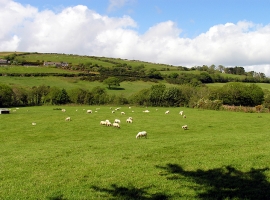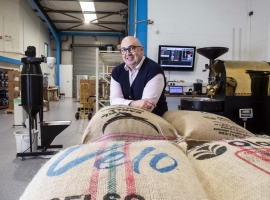
The Minister for Finance and Public Expenditure & Reform, Paschal Donohoe yesterday discussed the economic and fiscal impacts of a disorderly exit of the UK from the European Union with Government.
A preliminary assessment prepared by the Department of Finance for Government suggests that a disorderly exit will reduce the level of GDP (the size of the economy) by around 4¼ percentage points (relative to the Budget 2019 central scenario forecast) over the medium term (to 2023) and by around 6 percentage points relative to a hypothetical ‘no Brexit’ scenario.
It also predicts weaker exports due to trade disruption – tariff and non-tariff barriers – and sterling depreciation, and more modest domestic demand due to higher consumer prices, precautionary saving and uncertainty are the main channels through which economic activity would be affected.
The report predicts by 2023 that total employment would increase by around 178,000, but this would be some 55,000 below the Budget 2019 forecast. Employment in 2020 would still be higher than this year – but by a smaller amount.
According to the report, all forms of UK exit will have a detrimental impact on the Irish economy, with the most adverse impacts likely to be felt in agri-food and indigenous manufacturing sectors, as previous Department of Finance research has shown. The more disorderly the exit, the larger the macroeconomic impact.
Commenting on the assessment, Minister Donohoe said, "There remains considerable uncertainty surrounding the format the UK’s exit from the EU will take. The assessment by my Department shows that a disorderly exit would be particularly severe. The level of economic activity will be around 4¼ percentage points lower than our existing trajectory over the medium-term. This aggregate figure hides an even larger hit to economic activity in labour-intensive sectors such as agri-food and indigenous small and medium-sized enterprises."
He added, "Further, given Ireland’s unique macroeconomic and sectoral exposures to the UK these impacts would be disproportionate relative to the rest of the EU. It is important to recognise that such estimates may not capture the full impact, and the figures may be conservative. Nevertheless, quantifying the impact is important to help Government understand the possible macroeconomic implications and to design the appropriate policy response."
Source: www.businessworld.ie

















